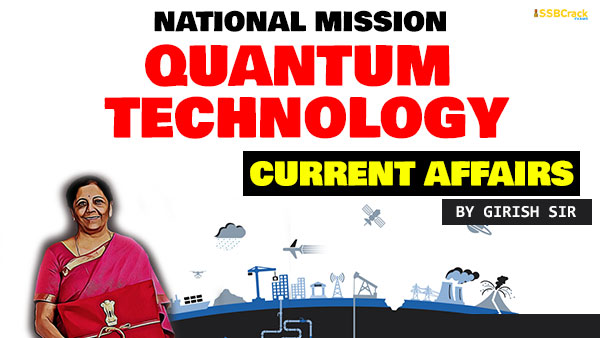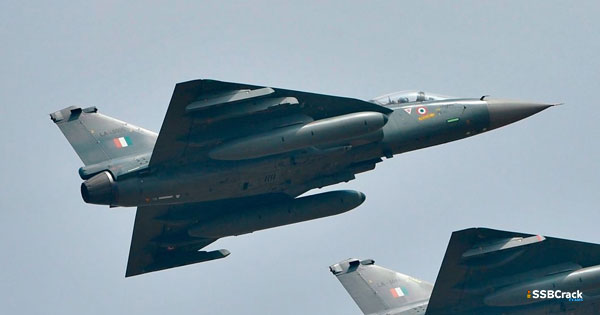Budget 2020 announces the largest ever science mission:
A 8000 cr National Mission on Quantum Technologies & Applications
The government in its budget 2020 has announced a National Mission on Quantum Technologies & Applications (NM-QTA) with a total budget outlay of Rs 8000 Crore for a period of five years to be implemented by the Department of Science & Technology (DST).
Finance Minister Smt. Nirmala Sitharaman in Union Budget 2020 speech said that the new economy is based on innovations that disrupt established business models. Artificial intelligence, Internet-of-Things (IoT), 3D printing, drones, DNA data storage, quantum computing, etc., are re-writing the world economic order.”
“Quantum technology is opening up new frontiers in computing, communications, cyber security with wide-spread applications. It is expected that lots of commercial applications would emerge from theoretical constructs which are developing in this area. It is proposed to provide an outlay of ` 8000 crore over a period five years for the National Mission on Quantum Technologies and Applications,” she added.
Quantum technologies are rapidly developing globally with a huge disruptive potential. The next generation transformative technologies that will receive a push under this mission include quantum computers and computing, quantum communication, quantum key distribution, encryption, crypt analysis, quantum devices, quantum sensing, quantum materials, quantum clock and so on. The areas of focus for the Mission will be in fundamental science, translation, technology development, human and infrastructural resource generation, innovation and start-ups to address issues concerning national priorities.
What is Quantum Technology?
- Quantum Technology is based on the principles of quantum theory, which explains the nature of energy and matter on the atomic and subatomic level.
- It concerns the control and manipulation of quantum systems, with the goal of achieving information processing beyond the limits of the classical world.
- Quantum computing takes advantage of the strange ability of subatomic particles to exist in more than one state at any time.
- Due to the way the tiniest of particles behave, operations can be done much more quickly and use less energy than classical computers.
- Its principles will be used for engineering solutions to extremely complex problems in computing, communications, sensing, chemistry, cryptography, imaging and mechanics.
- This key ability makes quantum computers extremely powerful compared to conventional computers when solving certain kinds of problems like finding prime factors of large numbers and searching large databases.
How is Quantum computer different from a traditional computer?
- What differentiates a quantum computer from a traditional computer is the way the two store information.
- Classical computers carry out logical operations using the definite position of a physical state.
- These are usually binary, meaning its operations are based on one of two positions. A single state – such as on or off, up or down, 1 or 0 – is called a bit.
- In quantum computing, operations instead use the quantum state of an object to produce what’s known as a qubit.
- According to reports the quantum processor took 200 seconds to perform a calculation that the world’s fastest supercomputer, Summit, would have taken 10,000 years to accomplish.
- Quantum computers perform calculations based on the probability of an object’s state before it is measured – instead of just 1s or 0s – which means they have the potential to process exponentially more data compared to classical computers.
National Mission on Quantum Technologies & Applications (NM-QTA)
- The mission will function under the Department of Science & Technology (DST).
- It will be able address the ever-increasing technological requirements of the society, and take into account the international technology trends.
The mission will help prepare next generation skilled manpower, boost translational research and also encourage entrepreneurship and start-up ecosystem development
Why such mission?
- Quantum technologies are rapidly developing globally with a huge disruptive potential.
- It is perceived that the countries who achieve an edge in this emerging field will have a greater advantage in garnering multifold economic growth and dominant leadership role.
- The range of quantum technologies is expected to be one of the major technology disruptions that will change entire paradigm of computation, communication and encryption.
- Implementation of the mission would help develop and bring quantum computers, secured communications through fibre and free space, quantum encryption and cryptanalysis and associated technologies within reach in the country and help address India specific national and regional issues.
- In August 2016, China sent the world’s first quantum satellite into space from a launchpad in the Gobi Desert. Micius, which circles the earth at an altitude of 500km, is a powerful signal of intent – a starting gun for the technological race that could define the next century.
- The mission will help prepare next generation skilled manpower, boost translational research and also encourage entrepreneurship and start-up ecosystem development. By promoting advanced research in quantum science and technology, technology development and higher education in science, technology and engineering disciplines India can be brought at par with other advanced countries and can derive several direct and indirect benefits.
- It has become imperative both for government and industries to be prepared to develop these emerging and disruptive changes.







